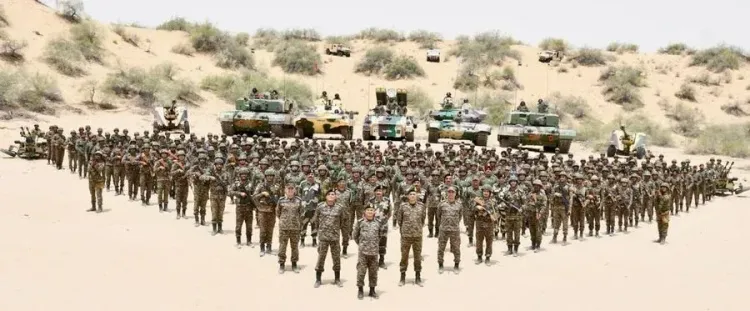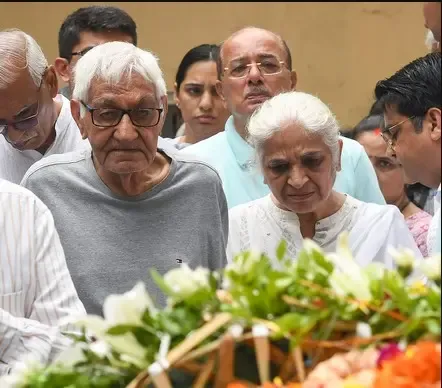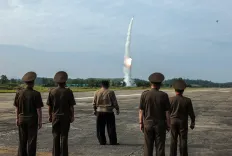What Are the Newly Notified Rules Under the Inter-Services Organisations Act to Enhance Armed Forces' Joint Command?

Synopsis
Key Takeaways
- Enhanced jointness among Armed Forces.
- Streamlined command and control through newly established rules.
- Effective implementation of disciplinary measures.
- Empowerment of ISOs leaders in operational synergy.
- Maintenance of unique service conditions for each branch.
New Delhi, May 28 (NationPress) The central government has officially issued the regulations under the Inter-Services Organisations (Command, Control and Discipline) Act 2023, aimed at fostering increased jointness and command efficiency within the Armed Forces.
These regulations, established under the Inter-Services Organisations (Command, Control and Discipline) Act 2023, were published through a gazette notification and became effective on May 27.
In a statement released on Wednesday, the government highlighted that this pivotal measure is designed to enhance the effective command, control, and operation of Inter-Services Organisations (ISOs), thereby fortifying collaboration among the Armed Forces.
The legislative Bill received approval from both the Rajya Sabha and Lok Sabha during the Monsoon Session of 2023.
It was signed into law by the President on August 15, 2023, and the Act was enacted as of May 10, 2024, according to the Gazette Notification dated May 08, 2024. Following this, the ISOs were formally recognized through Gazette Notification No. SRO 72 dated December 27, 2024.
The Act grants the Commanders-in-Chief and Officers-in-Command of the ISOs the authority to oversee the service personnel under their command, ensuring proper discipline and administration within these organizations, all while preserving the unique service conditions of each branch of the Armed Forces.
The newly established subordinate Rules, crafted under Section 11 of the Act, aim to facilitate the effective execution of the provisions outlined in the legislation.
These Rules are essential for the operational effectiveness of the ISOs and create a robust framework for discipline, administrative oversight, and operational collaboration.
With the introduction of these Rules, the Act is now fully functional. This will empower the leaders of the ISOs, streamline the handling of disciplinary cases, and prevent redundancy in proceedings.
According to the notification, "in the absence of the Commander-in-Chief, Officer-in-Command, or Commanding Officer, the officer designated to fulfill this role shall be announced in the Inter-services Organisation, Establishment, or Unit Orders, and in emergencies where such Orders are not available, by the officer appointed to act by the next higher formation until the official appointment is made."
"The officiating officer as the Commander-in-Chief, Officer-in-Command, or Commanding Officer shall, subject to any restrictions specified in respective Service Acts, rules, or regulations, exercise any authority granted to them as applicable."
Regarding disciplinary and administrative powers, the notification states, "The Commander-in-Chief of a Joint Services Command, the Officer-in-Command of an Inter-services establishment, and the Commanding Officer of an Inter-services unit shall possess all disciplinary and administrative powers over individuals subject to any of the Service Acts."









